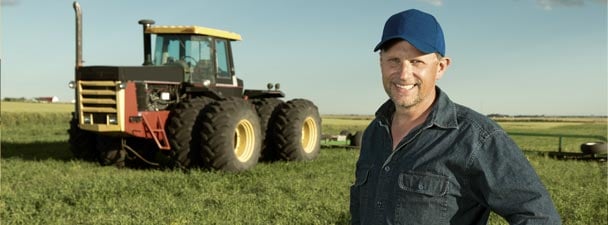
One of the things we love about living in the Tennessee Valley is our rich agricultural heritage. As a matter of fact, Bank Independent was founded by a group of farmers in 1947 when the Leighton, Ala. farming community needed a financial institution. Our roots run deep in the Alabama soil, so helping our farm families thrive is in our blood.
In recent years, farmers and ranchers have enjoyed profitable times, but many experts, including the USDA, are predicting stress ahead in the ag economy. If you are an agricultural producer, we can help you prepare financially for the changing agricultural economy. The American Bankers Association recommends that farmers maintain a close relationship with their financial institution, as well as the following tips:
- Cash is king. Carefully examine every capital purchase that will require additional debt. Ask yourself if the expenditure will generate the cash flow needed to pay for itself. If the new item can’t create enough new cash to pay for itself over a reasonable period of time, defer the purchase.
- Let a farm budget be your financial road map. Without a budget, you’ll be financially lost. Use a farm budget to track all income and expenses and update it frequently—it will help you maintain the direction of the business.
- Analyze your farm’s financial position and performance. Are you getting the maximum return from your investments? If not, why? Are your non-farm assets generating a maximum return? If not, can any be sold?
- Examine your debt structure. Finance long-term assets, like real estate, with long-term debt. Finance shorter-term assets, like machinery, with shorter-term debt. Is it possible to increase your long-term debt to pay down your short-term debt? When deciding to use your long-term equity, make sure your need is extremely significant.
- Prepare for your financial review with your banker. Have current inventories, cash flows and balance sheets ready, and provide the information your banker requests. If you are having financial problems, put your thoughts about how to resolve them on paper so your banker can review them with you.
- Ask your banker about the USDA’s guaranteed farm and rural development loan programs. Your debt can be restructured over a longer period at a lower rate if the USDA provides a credit guarantee to the bank. If your banker does not know about the programs, set up an appointment for you both to visit a USDA Service Center.
- Review your hazard and fire insurance coverage. Increasing your deductibles can lower your premium. Carefully review every item on your inventory list and consider eliminating coverage on obsolete or low-risk items.
- Examine your life insurance policies. Many whole-life policies contain provisions that allow you to borrow against or deduct premium costs from the cash surrender value at low rates. What type of life insurance do you have? Is it worthwhile to maintain a costly whole life policy when you could get similar coverage from a less expensive term policy?
- Deal with financial problems immediately. Talk to your banker early and often. A good way to avoid serious financial problems is to identify and resolve them early. Take a team approach; create a personal “board of directors” of people you know and respect—including your banker—who can be your sounding board.
- Keep a clear perspective. Think through business problems by temporarily getting away from them. Take a weekend off, or resolve to see at least one movie before it comes out on DVD. However you do it, it is important for you balance and shift your focus to other activities—it will make your home team stronger.
Your bank can be a trusted partner in your agricultural enterprise. Bank Independent's Sales Officers are well-versed in many industries, including farming, and our entire team of branch folks are equipped to help you with all of your banking needs. To request a call from a Bank Independent Sales Officer, simply click the button below and complete the contact form!

